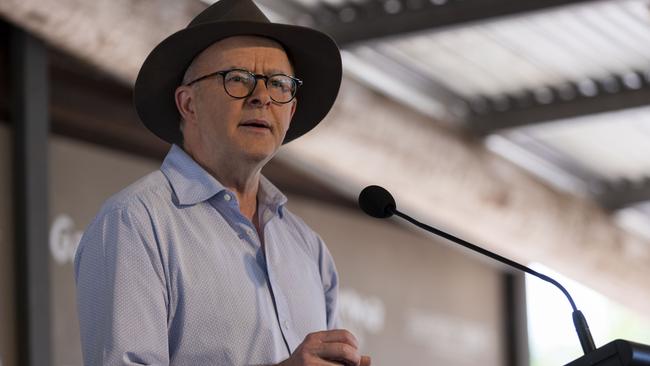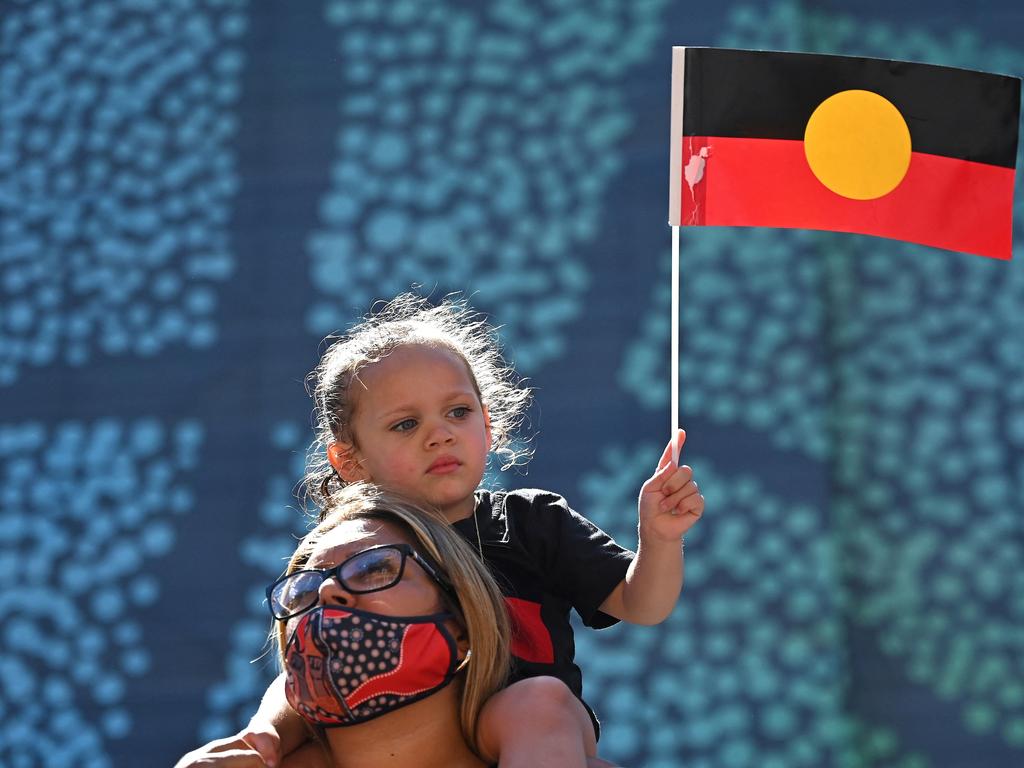
After the Prime Minister revealed the proposed amendment to the Constitution that could be put to Australians at the referendum, Leeser said the country is on the right track now.
The next step, he said, is to “explain to Australians how the voice will work, who will serve on it, how they will be chosen, what will it do and how will it address issues that concern Indigenous Australians”.

By quibbling over who might sit on the race-based body, and so on, Leeser has taken all meaningful pressure off the Albanese government in the lead-up to the referendum. He has also made the Liberal Party irrelevant on the critical issue of how this country is governed.
The Liberals have for too long sat on the fence about whether a separate race-based body should be entrenched in our Constitution. The voice is a body without precedent that will fundamentally alter how we govern ourselves. It changes our one person-one vote, colourblind democracy by giving a special constitutionally enshrined voice to one race.
The Liberal Party, under new leader Peter Dutton, could have started from a simple, principled position in keeping with basic liberal values that requires any race-based body to be below the parliament in standing and power. That means ensuring parliament has the power to abolish the voice. That single principle maintains a system of government that respects we, the people, and has served this country well since the Constitution was enacted.
If the Liberals took this position, they wouldn’t be relegated to irrelevance now by quibbling over who might sit on the body or how it might be elected. While Australians deserve to be fully informed about these issues, they will be included in legislation and can be amended as required by our elected parliament. They are thus second-order issues.
The first-order issue is what words are inserted in the Constitution, as these words, once inserted, cannot be changed by parliament.
On the weekend, the Prime Minister unveiled possible wording that may be put to Australians: “There shall be a body, to be called the Aboriginal and Torres Strait Islander voice. The Aboriginal and Torres Strait Islander voice may make representations to parliament and the executive government on matters relating to Aboriginal and Torres Strait Islander peoples. The parliament shall, subject to this Constitution, have power to make laws with respect to the composition, functions, powers and procedures of the Aboriginal and Torres Strait Islander voice.”
If the Liberals were focused on today’s principles, not tomorrow’s minutiae, they would point out that inserting a comma and two additional words is critical: namely the words “and abolition” after “procedures”.
That way, any untested race-based body is subject to parliament. That is the core feature of our system of government.
It would also be critical to delete the words “and the executive government” from the proposed second sentence. Voice activists have spoken about a “voice to parliament” arguing that commenting on proposed bills before parliament is modest in scope.
Extending the reach of this body to everything done by executive government means it could permanently second-guess everything that passed across the desk of ministers or public servants. This extension is an act of massive overreach that will radically change our system of government.
Revealingly, Anthony Albanese told the ABC’s Insiders “the primacy of parliament continues” under the wording he unveiled. A few minutes later, the PM said “it would be a very brave government” that ignored a representation put to government by the new Indigenous body. Albanese has confirmed the new race-based body will, in effect, have a veto power over government policy.
This should be the battleground. Dutton should be positioning the Liberal Party on a point of constitutional principle that is easy to understand. Maintaining the supremacy of parliament – the system of one person, one vote – so if a race-based body in the Constitution turns out to be a disaster, if it is no longer needed, or if the High Court turns it into something different, then parliament can abolish it.
The risk of the voice becoming a governance disaster is real. That is why parliament must retain the ultimate sanction, the ability to abolish it. The existence of that threat is critical to holding this untested body to any sort of moderation.
It is also high time the Liberals confronted mischievous claims that an Indigenous voice would be “non justiciable”; in other words, beyond the reach of the courts. Leeser is a lawyer. He knows it is nonsense to say a provision in our founding document is beyond the reach of the High Court.
It is not hard to imagine activists heading to the High Court arguing that to give proper effect to the words unveiled by Albanese, the High Court must imply consequential rights and powers in the Indigenous body, and corresponding duties and obligations on parliament, which were nowhere mentioned in the legislation parliament must enact to establish the voice, and which no one could have dreamed of at the time.
It is not hard to imagine an activist High Court using the doctrine of implied powers and rights to gum up the proceedings of parliament and the daily conduct of government.
And what a field day activists will have in court using High Court Justice James Edelman’s words in the Love case where he spoke about “metaphysical bonds” and “an underlying fundamental truth” to impose a race-based limit on parliament’s power. Given the High Court in Love divided 4-3 on how to interpret the Constitution, there is no way to know what it will do with a constitutionally entrenched race-based voice.
The only safe way to ensure this novel Indigenous body does not become a governance disaster of unholy scale is to give parliament the ultimate control to abolish it.
This is the fundamental principle a Liberal leader should fight for, not some second-rate battle over bagatelles.






At the Garma Festival, shadow attorney-general Julian Leeser said of the proposed Indigenous voice to parliament: “I don’t want to see this fail because the government has not provided the detail or answered necessary questions.” In that single sentence Leeser has dealt the Liberal Party out of the debate about a referendum to entrench a race-based voice in the federal Constitution.